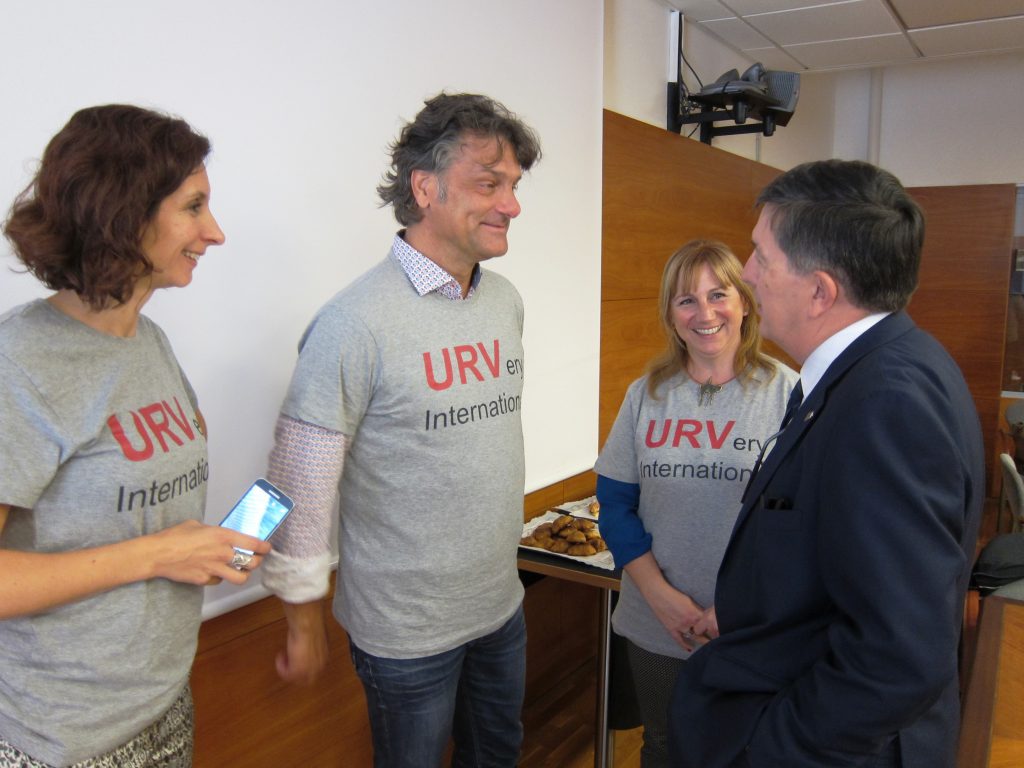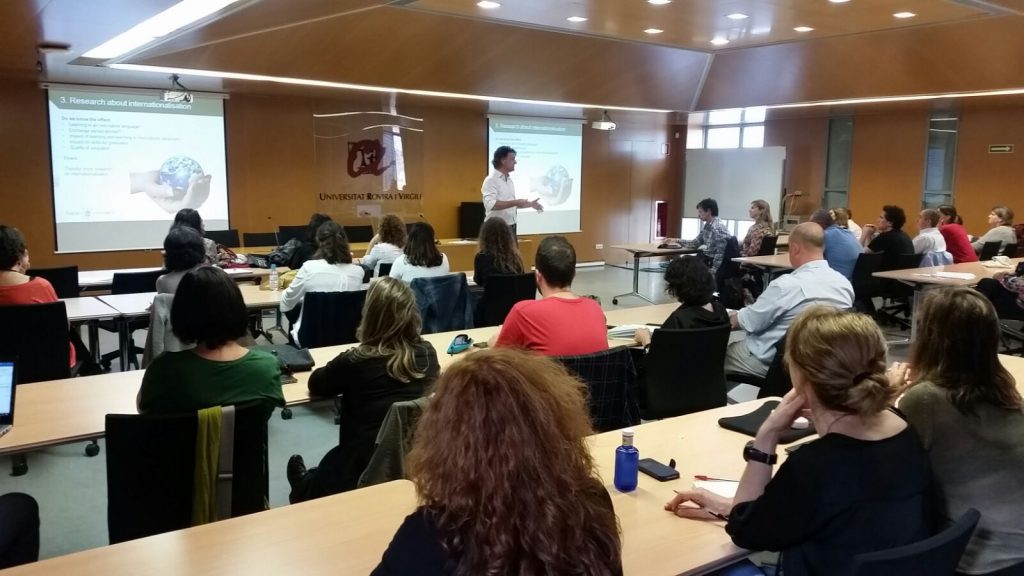25/11/2016
Hans Georg van Liempd: “You can be very proud of your institution”
The ex-president of the European Association of International Education (EAIE) and head of the internationalisation project of the University of Tilburg (Netherlands), Hans Georg van Liempd, gave a lecture at the University and met with the URV’s Internationalisation Committee. We took advantage of his visit to interview him

The ex-president of the European Association of International Education (EAIE) and head of the internationalisation project of the University of Tilburg (Netherlands), Hans Georg van Liempd, gave a lecture at the University and met with the URV’s Internationalisation Committee. We took advantage of his visit to interview him
- What are your first impressions of the URV?
The URV is too modest and timid. I have seen a great deal of quality during my visit and you should be showing this to the world! I have observed high quality teaching programmes, first rate research and highly motivated and professional staff. I think you can be very proud of your institution. You must show this pride wherever you go in the world!
- What is your opinion of our internationalisation process and the Strategic Internationalisation Plan?
The Strategic Internationalisation Plan is highly ambitious, concise and well thought through. Make sure that you have enough people and resources to carry it out. The most important thing is to decide which are the most urgent issues, because you won’t be able to achieve everything at once. And it is essential that you involve the people who are already working internationally or who are convinced of the importance of internationalisation. They will be motivated and, with appropriate recognition and management, they will help the institution to go much further.
- What other advice can you give us on the basis of your experience on the project at Tilburg?
It is crucial to explain to the university community why internationalisation is so important. The first and very necessary task is to raise awareness of this importance because otherwise the university community sees changes towards internationalisation that it does not understand and this can generate resistance. If it is explained well and emphasis is placed on the importance of internationalisation for everyone, for international education institutions, people become motivated and get involved. Perhaps not everyone, but at least there will be less resistance. Companies, for example Repsol which is located locally, have had to change and to react to changes in the business sector in order to compete globally. Universities must learn from the example of business. Chemical companies have changed, airlines have changed, all have adapted to the new international circumstances. Not everyone will agree, but it is a natural process of adapting to the environment. And the environment that a university needs to be in today is the international environment.
- What have you enjoyed most about your visit?
The friendliness of the people at the URV, the privileged location that you have, the good local food … in short it is a very pleasant place. If I compare it with Barcelona, here people have more time and are more friendly, they enjoy life more.
“Towards an International Campus”
During his visit to the University on 18 and 19 October, Hans Georg van Liempd gave a lecture at the Catalunya Campus attended by 45 members of the administrative staff and teaching and research staff. The purpose of the lecture was to present the “Towards an International Campus” project which Mr van Liempd worked on at the University of Tilburg. It was a process of change that made the university more international in all areas.

The aim of the “Towards an International Campus” project was to make international students and staff at the university feel more at home and to integrate them into the local community. It had four overarching lines of action: language, culture, integration and services. The project lasted seven years and involved all parts of the university in an effort to achieve real changes with the support of the institution’s management. The process of change initially met with the resistance that such initiatives can often encounter, but it managed to solve the principal problems faced by the institution in terms of internationalisation, for example by achieving greater acceptance of English, increasing awareness of internationalisation as a process of change, improving the university’s services and increasing many benefits for international students and staff. Many people participated in the first session at the URV and the general feeling was that it had been a very positive experience, with many asking for similar activities in the future to help them raise awareness of internationalisation and motivate people to work towards it. On the morning of 19 October, Hans Georg van Liempd participated in an extraordinary meeting of the URV’s Internationalisation Committee, which has reviewed the Strategic Internationalisation Plan by organising work groups to work on different lines of action. This session was also very positive. The Rector and the Vice-Rector for Internationalisation personally thanked Mr van Liempd for the inspiring example that he had shared with the URV’s university community.
More news about: International Center, Internationalization
